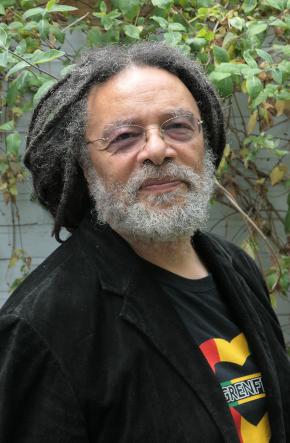"Africa and the end of the black atlantic" - Paul Gilroy
THURSDAY 18 JULY
1145-1300 Auditório 1, Floor 1, Tower B, FCSH
Paul Gilroy Professor of American and English Literature, King’s College London
- Scholar of the Black Atlantic, Wins Holberg Prize
 Paul GilroyMy talk will discuss the altered ecology of belonging that has emerged into Africa’s diasporas during the decades since “Black Atlantic” was published. My discussion of the problems that this has raised will centre on several key themes. They include the fortification of the overdeveloped countries, the impact of new communicative technologies on conceptions of solidarity, relationality and mutuality, the resurgence of extractive capitalism, and the export of generic racial identities from the USA to the whole world.
Paul GilroyMy talk will discuss the altered ecology of belonging that has emerged into Africa’s diasporas during the decades since “Black Atlantic” was published. My discussion of the problems that this has raised will centre on several key themes. They include the fortification of the overdeveloped countries, the impact of new communicative technologies on conceptions of solidarity, relationality and mutuality, the resurgence of extractive capitalism, and the export of generic racial identities from the USA to the whole world.
Professor Paul Gilroy joined King’s College London in September 2012 having previously been Giddens Professor of Social Theory at the London School of Economics (2005-2012), Charlotte Marian Saden Professor of African American Studies and Sociology at Yale (1999-2005) and Professor of Cultural Studies and Sociology at Goldsmiths College (1995-1999). His areas of scholarly interest encompass postcolonial studies, particularly with regard to London, postimperial melancholia and the emplotment of English victimage; the literature and cultural politics of European decolonisation; African American intellectual and cultural history, literature and philosophy; the formation and reproduction of national identity especially with regard to race and “identity”; the literary and theoretical significance of port cities and pelagics. Gilroy has also published on art, music and social theory. His current projects are the writing of Alain Locke, the cultural significance of aerial bombardment and the autobiographical writing generated by colonial wars.
Source: https://www.kcl.ac.uk
Concept
The conference aims to foster the presentation and discussion of multiple disciplinary approaches and contributions to the understanding of cultural, literary, historical, social, educational, artistic, ecological, and political landscapes in Africa. The conference will bring together students, academics, policymakers, community leaders, artists. It will promote a broad disciplinary approach to African Studies and a dynamic forum for discussion and knowledge production. A particular attention will be dedicated to the importance of future leaderships and to the role of young policymakers, researchers and artists.
As Africa evolves towards an increasingly more centric position in the world stage and as it showcases notable narratives of development, resistance and creation, it is paramount to listen to African scholarship and to engage in collaborative discussions. Such approach is one of the many possible ways of moving together towards a most needed discussion on authorized voices in research dissemination, and on the current relevance of postcolonial theory and its growing divergent readings. How can we chart such heritage? Who do we need to listen to at the transnational, national and regional levels?
—https://www.chamconference.org/2019/panels#all